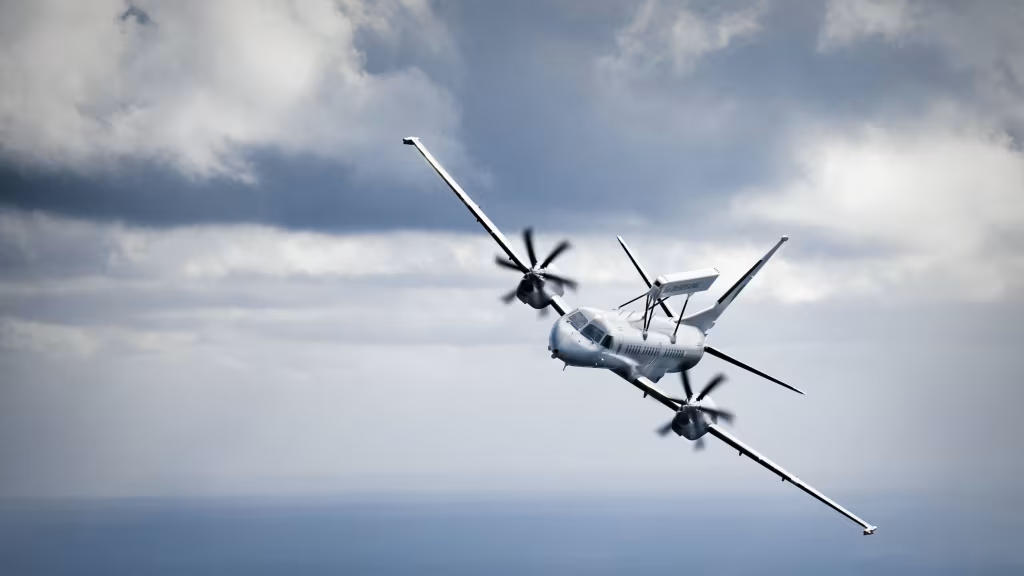
Illustration of an airplane (Shutterstock).
In early 2022, the Indonesian government announced a significant agreement with Singapore regarding the re-delegation of the management of the Singapore’s Flight Information Region (FIR). The core of this agreement was the transfer of air traffic control responsibilities for the airspace above the Riau Islands and Natuna, previously managed under Singapore’s FIR, back to Indonesia.
However, in practice, the technical management of this airspace was re-delegated to the Singapore Air Traffic Control (SATCC), an agency under Singaporean authority. This decision, described as a strategic step to enhance capacity and efficiency, is not merely a technical memorandum on paper. It serves as a mirror—a reflection of the real power dynamics within our republic. Beneath the official narrative lies a classic drama about who truly holds the reins of strategic national decisions.
To understand the dynamics behind this agreement, which touches the very heart of the nation’s sovereignty, we must move beyond international legal analysis and aviation technicalities. We need an analytical tool capable of dissecting the hidden forces at play. That tool is the “Power Elite” theory, formulated by American sociologist C. Wright Mills.
At its core, Mills argues that in modern societies, power is not democratically distributed; rather, it is concentrated in the hands of a small elite integrated from three main pillars: politics, the military, and large corporations. These elites form an exclusive network, exchanging positions and making strategic decisions within a closed circle, far from public participation and scrutiny. The general populace, in this theory, becomes nothing more than passive spectators.
So, how does Mills’ lens help us interpret the 2022 FIR agreement? First, the decision to delegate airspace management, a domain constitutionally part of national sovereignty, is clearly not a mere technical decision. This is a high-level political decision involving the President, the Foreign Minister, the Minister of Defense, and other key stakeholders. The process was carried out behind closed doors, with negotiations conducted as part of a larger package (including extradition and defense agreements), and the public and the legislature were only informed once the deal was finalized. This pattern aligns perfectly with Mills’ thesis: strategic and sovereign issues are decided by a handful of elites, not through a democratic, participatory process.
Secondly, the FIR case starkly illustrates the intersection of the three pillars of power as described by Mills. The political elite were involved in fulfilling the bilateral diplomatic agenda. The military/defense elite had vital interests, as the FIR pertains to surveillance of strategic airspace, particularly around the Natuna Islands and the sensitive Malacca Strait. Meanwhile, the economic/corporate elite, ranging from AirNav Indonesia to airport operators and airlines, had a vested interest in ensuring the smooth flow of air traffic and the financial benefits that accompany it. These three interests intertwined, compromised, and ultimately produced a policy that reflected their agreement more than the will of the sovereign people.
Thirdly, the Power Elite theory helps us identify patterns of circulation and exclusivity. The same individuals often appear in decision-making processes across various sectors. A retired general sitting in a key state institution, or a high-ranking bureaucrat with strong ties to the business world—these are the figures who make the big decisions, creating a homogeneous set of interests that is difficult to penetrate from the outside. What is most troubling about this is the democratic gap revealed by this analysis. The 1945 Constitution firmly states that sovereignty rests with the people. Yet in practice, our sovereignty over the skies is “traded” at negotiation tables controlled by a handful of elites.
The people, who should rightfully be the owners of that sovereignty, are relegated to a passive role, only hearing the final outcome through the media. Mills’ theory challenges the illusion of formal democracy and asks: Are we truly sovereign if the most important decisions are made without our involvement?
Using the Power Elite theory, the 2022 FIR agreement can no longer be seen simply as a diplomatic achievement or a technical improvement. It must be viewed as a product of elite power compromises that may have sacrificed the true meaning of sovereignty. While international law and technical analysis are undoubtedly important, without delving into the power dynamics behind them, we are left with only the surface of the issue.
Thus, the conclusion is clear: the state must undertake deep reforms in its decision-making mechanisms for strategic and sovereign matters. Transparency, accountability, stronger parliamentary oversight, and meaningful public participation are no longer options but imperatives. Without these reforms, our sovereignty will continue to be a bargaining chip traded by a select few in closed rooms, drifting further from the constitutional ideal that places ultimate power in the hands of the people. We must ensure that sovereignty—in the air and across all domains—truly belongs to the people, not just to the power elites, as outlined in C. Wright Mills’ theory.
Jakarta, September 18, 2025
Indonesia Air Power Study Center
Summarized and compiled from various sources.*
Chappy Hakim is a former Air Force chief of staff, the founder and chairman of the Indonesia Center for Air Power Studies (ICAPS), and a member of Kiroyan Partners’ Senior Advisory Council. The views expressed are personal.
Source: Netralnews.com, September 18, 2025.
Download the clipping here.



